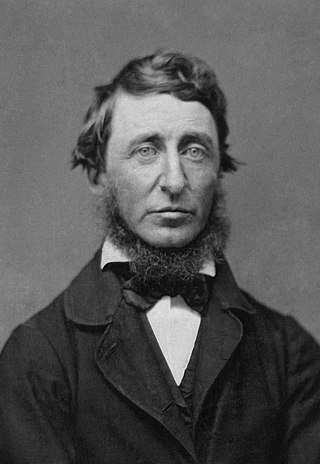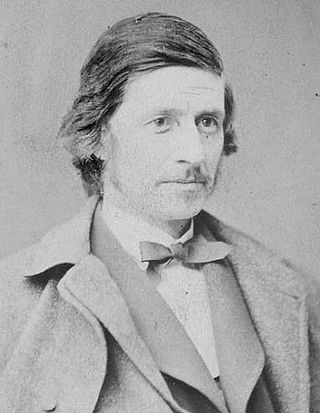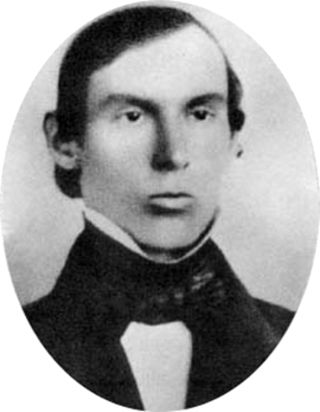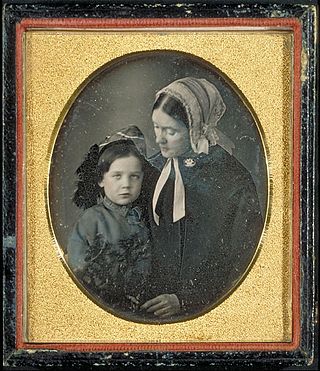Related Research Articles

Ralph Waldo Emerson, who went by his middle name Waldo, was an American essayist, lecturer, philosopher, abolitionist, and poet who led the transcendentalist movement of the mid-19th century. He was seen as a champion of individualism and a prescient critic of the countervailing pressures of society, and his ideology was disseminated through dozens of published essays and more than 1,500 public lectures across the United States.

Henry David Thoreau was an American naturalist, essayist, poet, and philosopher. A leading transcendentalist, he is best known for his book Walden, a reflection upon simple living in natural surroundings, and his essay "Civil Disobedience", an argument for disobedience to an unjust state.

Samuel Hoar was a United States lawyer and politician. A member of a prominent political family in Massachusetts, he was a leading 19th century lawyer of that state. He was associated with the Federalist Party until its decline after the War of 1812. Over his career, Hoar developed a reputation as a prominent Massachusetts anti-slavery politician and spokesperson. He became a leading member of the Massachusetts Whig Party, a leading and founding member of the Massachusetts Free Soil Party, and a founding member and chair of the committee that organized the founding convention for the Massachusetts Republican Party in 1854.

"Concord Hymn" is a poem by Ralph Waldo Emerson written for the 1837 dedication of an obelisk monument in Concord, Massachusetts, commemorating the battles of Lexington and Concord, a series of battles and skirmishes on April 19, 1775 which sparked the American Revolutionary War.

Sylvester Judd was a Unitarian minister and an American novelist.

James Freeman Clarke was an American minister, theologian and author.
Walter Harding (1917–1996) was a distinguished professor of English at the State University of New York at Geneseo and internationally recognized scholar of the life and work of Henry David Thoreau. Harding was born in Bridgewater, Massachusetts, and received his B.S. from Bridgewater State College in 1939, M.A. from the University of North Carolina in 1947 and a Ph. D. from Rutgers University in 1950.

Franklin Benjamin Sanborn was an American journalist, teacher, author, reformer, and abolitionist. Sanborn was a social scientist, and a memorialist of American transcendentalism who wrote early biographies of many of the movement's key figures. He founded the American Social Science Association, in 1865, "to treat wisely the great social problems of the day". He was a member of the so-called Secret Six, or "Committee of Six", which funded or helped obtain funding for John Brown's Raid on Harpers Ferry; in fact he introduced Brown to the others.

Jones Very was an American poet, essayist, clergyman, and mystic associated with the American Transcendentalism movement. He was known as a scholar of William Shakespeare, and many of his poems were Shakespearean sonnets. He was well-known and respected among the Transcendentalists.

The Ralph Waldo Emerson House is a house museum located at 18 Cambridge Turnpike, Concord, Massachusetts, and a National Historic Landmark for its associations with American philosopher Ralph Waldo Emerson. He and his family named the home Bush. The museum is open mid-April to mid-October; an admission fee is charged.

Peter Bulkley was an influential early Puritan minister who left England for greater religious freedom in the American colony of Massachusetts. He was a founder of Concord, and was named by descendant Ralph Waldo Emerson in his poem about Concord, "Hamatreya".
Robert Dale Richardson III was an American historian and biographer.

The transparent eyeball is a philosophical metaphor originated by American transcendentalist philosopher Ralph Waldo Emerson. In his essay Nature, the metaphor stands for a view of life that is absorbent rather than reflective, and therefore takes in all that nature has to offer without bias or contradiction. Emerson intends that the individual become one with nature, and the manner of the transparent eyeball is an approach to achieving it.
Mary Moody Emerson was an American letter writer and diarist. She was known not only as her nephew Ralph Waldo Emerson's "earliest and best teacher", but also as a "spirited and original genius in her own right". Ralph Waldo Emerson considered her presence in his life a “blessing which nothing else in education could supply”; and her vast body of writing—her thousands of letters and journal entries spanning more than fifty years—"became one of Emerson's most important books". Her surviving documents reveal the voice of a "woman who […] had something to say to her contemporaries and who can continue to speak to ours" about "the great truths that were the object of her life's pilgrimage".

Edward Waldo Emerson was an American physician, writer and lecturer.

Lidian Jackson Emerson was the second wife of American essayist, lecturer, poet and leader of the nineteenth century Transcendentalism movement, Ralph Waldo Emerson, and mother of his four children. An intellectual, she was involved in many social issues of her day, advocating for the abolition of slavery, the rights of women and of Native Americans and the welfare of animals, and campaigned for her famous husband to take a public stand on the causes in which she believed.
Raymond Emerson was an American civil engineer, investment banker, and faculty at the Peabody Museum of Archaeology and Ethnology. He is known for his large donations of personal Ralph Waldo Emerson letters and other documents for educational purposes. He was part of the Emerson family, and was Ralph Waldo Emerson's last surviving grandson. In addition to his marriage to Amelia Forbes, he was also connected to the Forbes family through other marriages in his parents' and his own generations.
A Yankee in Canada, with Anti-Slavery and Reform Papers is an anthology of works by Henry David Thoreau, edited by his sister Sophia Thoreau and his friends William Ellery Channing and Ralph Waldo Emerson. It was published in 1866, after Thoreau’s death, by Ticknor and Fields, the Boston firm that had published Walden.

Caroline Sturgis Tappan, commonly known as Caroline Sturgis, or "Cary" Sturgis, was an American Transcendentalist poet and artist. She is particularly known for her friendships and frequent correspondences with prominent American Transcendentalists, such as Margaret Fuller and Ralph Waldo Emerson. Sturgis published 25 poems in four different volumes of The Dial, a Transcendental periodical. She also wrote and illustrated two books for children, Rainbows for Children (1847) and The Magician’s Show Box, and Other Stories (1856).
Elizabeth Hall Witherell is a literary historian and scholarly editor. Since 1980, she has been the editor-in-chief of The Writings of Henry D. Thoreau, a project founded in 1966 that aims to provide, for the first time, accurate and complete texts of the published works, the Journal, and the correspondence of the 19th century American scientific naturalist, transcendalist, and writer Henry David Thoreau (1817-1862). Witherell served as President of the Association for Documentary Editing from 1992 to 1993 and as President of the Thoreau Society from 1996 to 2000.